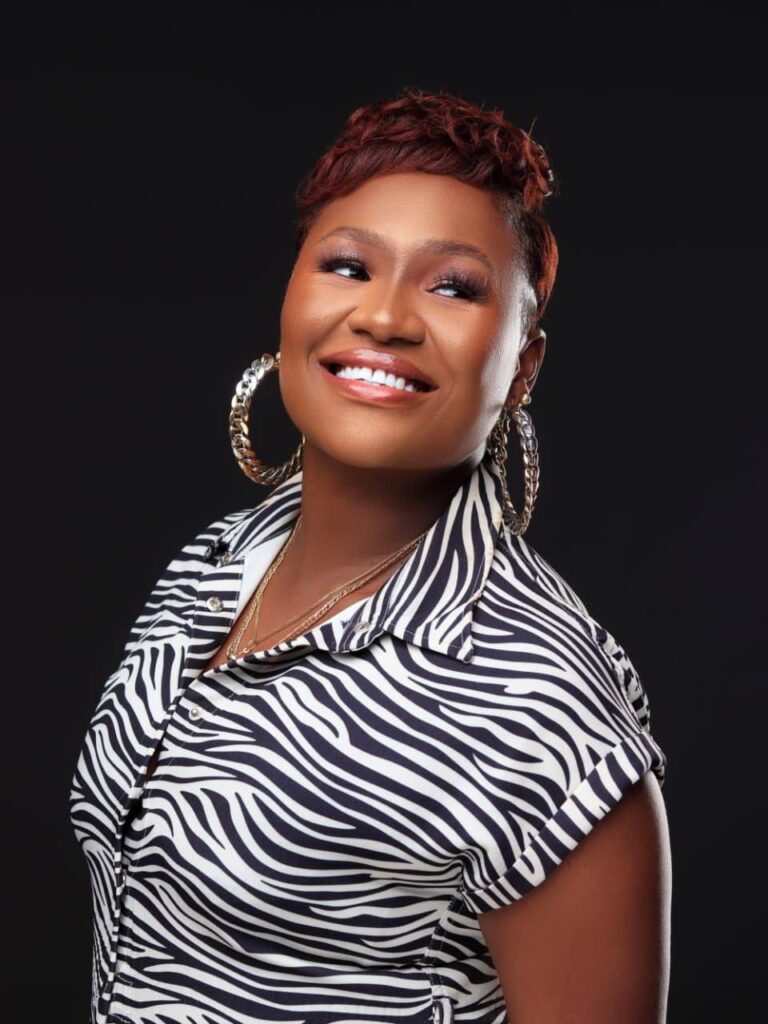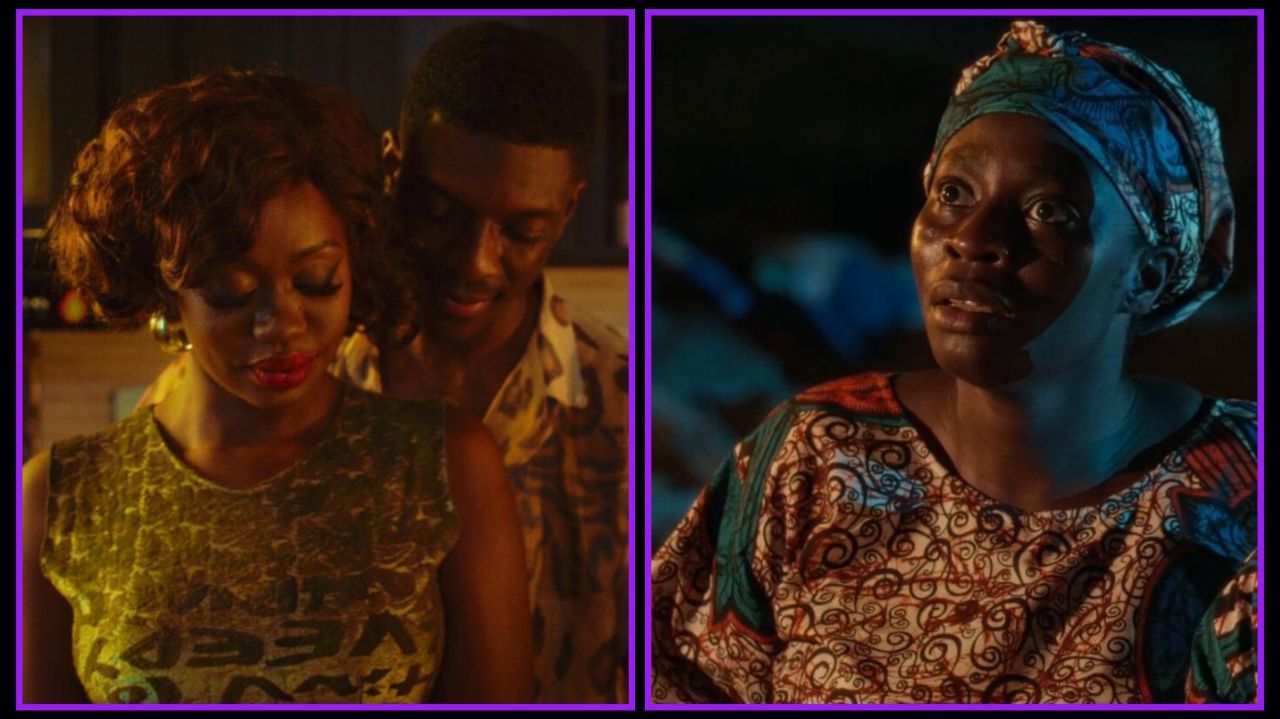Dear reader, help us understand your Nollywood preferences by filling out our audience survey—your input is invaluable and deeply appreciated! Click this link.
I first encountered the term “momager”—a blend of “mum” and “manager”—while watching Keeping Up With the Kardashians as a young girl, mesmerised by how Kris Jenner transformed her children into multi-million-dollar brands. But, long before the term became popular, mothers across industries have been playing this dual role—nurturing their children while managing their careers. In Nollywood, this reality is no different.
This Women’s History Month, we peek into the lives of three Nollywood momagers: Bisilola Asenuga, Olawunmi Egwuatu, and Adeyinka Shodia. These women are protectors, negotiators, and the driving force behind their children’s growing careers. They ensure their children are not just successful but also safe, valued, and shielded from exploitation.
Thanks to their dedication, Nollywood’s rising generation of child actors is proving that age is no barrier to talent. Among them is Fiyinfoluwa Asenuga, an award-winning actor, author, and speaker who began his journey at seven. With standout performances in Mikolo, The House of Secrets, Shining Star, and Finding Me, Fiyin is establishing himself as a force to be reckoned with.
Another young star making waves is Diana Egwuatu, best known for her breakout role in God Calling. With additional credits in Friends Only, Diiche, and Dead of Night, Diana has solidified her place in the industry as a versatile performer with a bright future.
Pamilerin Ayodeji, another standout child star, has made a name for herself with roles in Lizard, Gangs of Lagos, Mikolo, and the highly anticipated Children of Blood and Bone. Her ability to bring characters to life has earned her a place among Nollywood’s most promising young talents.
These young actors are just a few of the many child stars, captivating audiences and proving that Nollywood’s future is in good hands. But their success is not just their own—it is shaped by the unseen labour of their mothers, who work behind the scenes to ensure their children’s dreams become reality.
What does it take to be a momager in Nollywood? What sacrifices do they make, and how do they strike a balance between being protective mothers and business-minded managers?
The Making of a Momager
None of these women set out to become momagers—it was a role they stepped into out of necessity. For Bisilola (Fiyin’s mother), it all started with a simple Instagram ad. “We saw an ad for a kids’ acting training by Stan Nze and decided to go. Fiyin did so well that we got called for an audition, and suddenly, we were on a movie set,” she recalls. Since then, she has transformed from a supportive mum to a full-fledged manager, taking some training along the way to better advocate for fair contracts and ensuring her son isn’t overworked.
For Olawunmi (Diana’s mother), her daughter’s confidence set things in motion. “Diana was watching a movie on Africa Magic when she suddenly said, ‘I can do better than this girl.’ Her confidence stuck with me, so I just picked up my phone and started searching online for kids’ agents in Nigeria.” Diana began modelling at age three and acting at age four; her mother has been by her ever since.
Adeyinka (Pamilerin’s mother) became a momager out of a need to protect her daughter. “On our first set, I saw how they mounted the mic, and I thought, ‘I don’t want anyone touching my daughter without my consent.’ That’s when I knew I had to be hands-on,” she says.
With years of experience in customer-facing roles at MTN and the oil and gas sector, transitioning into a momager role came naturally for her. What started as a protective instinct soon became a full-time responsibility—ensuring Pamilerin’s safety and securing the best opportunities for her.
A Day in the Life of a Momager
No two days are the same for these Nollywood momagers. One day, they’re on set ensuring their child’s needs are met; the next, they’re negotiating contracts, helping with school assignments, or simply being “Mum.” Their schedules shift constantly, dictated by film shoots, school deadlines, and the unpredictable nature of the entertainment industry.
For Adeyinka, the daily hustle includes juggling her momager role with running her own business and raising her second daughter. “Luckily, my second daughter is quite independent and an exceptional student in school, making it easier for Pamilerin and me to be on set for days and weeks when necessary. I also have an understanding work partner, and my younger brother steps in when I can’t be with Pamilerin on set. Education is non-negotiable, so if she misses a class, I take notes to keep her on track.”
Bisilola takes it one day at a time. “When there’s no filming, it’s school, assignments, and household chores. But when there’s a shoot, we adjust everything. It’s not easy, but with planning and a solid support system, we make it work.”
“You practically don’t have a life of your own,” Olawunmi admits. Between managing Diana’s acting gigs, brand collaborations, and schoolwork, her schedule is constantly shifting. “I could plan to rest, maybe go to the movies, then get a call that Diana is needed on a project. Everything changes in an instant. That is how the entertainment industry works.”

The Challenges of Being a Momager in Nollywood
With their children’s rising profiles, these momagers must carefully select projects that align with their values, schedules, and long-term career goals—while advocating for fair treatment in an industry they say often overlooks young actors.
Bisilola battles industry challenges like poor time management while carefully selecting projects that align with her son’s brand and ensuring his education remains a priority. “If a shoot conflicts with an exam, school comes first, and productions have to adjust, but the bigger issue is the lack of structure—call times are set for 7 a.m., yet filming doesn’t start until noon, and then they expect Fiyin to shoot until 3 a.m. and be back on set by 9 a.m. the next day, with no regulations protecting child actors from this.”
Olawunmi constantly has to fight for fair pay. “People question her fees, but she delivers and deserves fair pay. Some productions even neglect basics like providing meals for a guardian, forgetting that children can’t be on set alone. I won’t put my child through stress for a job that doesn’t appreciate her talent. We only go for projects that boost her career, are educational, and have an impact.”
Adeyinka agrees, revealing, “Child actors are often underpaid because people assume they shouldn’t earn much, but why should they work hard and get less than they deserve? I won’t let my daughter work in poor conditions. This isn’t my livelihood, so I won’t disrupt her life for just any project that isn’t worth it.”
Drawing the Line: Mum vs Manager
One of the biggest challenges momagers face is balancing their roles as both parent and manager. While they work to secure the best opportunities for their children, they also prioritise their well-being, ensuring that fame doesn’t overshadow their childhood.
Olawunmi maintains a clear boundary between parenting and management to keep Diana grounded. “At home, we’re just mum and daughter, but on set or during brand deals, I remind her, ‘Right now, I’m your manager, and you need to focus.’ Once the work is done, we switch back. We don’t want her to grow up too fast, so we ensure she always has normal kid experiences like riding her bicycle, and watching cartoons.”
“As a mother, I want to be soft with him, but as his manager, I have to be firm,” Bisilola admits. “When we’re working, I’m in full manager mode, but once we’re home, he’s just Fiyin. He plays, does chores, and goes to school. I make sure he knows I’m his mum first.”
For Adeyinka, communication is key. “She sees me as her mum first, which I love, but sometimes, I have to put my foot down and step into the manager role. I also constantly check in with her. Every six months, I ask Pamilerin, ‘Do you still want to do this?’ This needs to be her passion, not an obligation. When fans recognise her in public, I remind her to stay humble. As a single mum, I put in extra effort, knowing the stigma that comes with it, but beyond my hard work, I give all the credit to God.”
Protecting Child Actors in Nollywood
With no established guidelines for child actors in Nigeria, these momagers have had to set their own rules to protect their children.
Adeyinka navigates this by having non-negotiables. “I have certain policies regarding children actors below 18; you don’t keep them on set till after 7:00 p.m. If production goes past that time, they will have to provide accommodation. It’s all based on principles because safety is very important to me. Once I read a script because I read all of them, I ask what the expectations are and ensure that she is protected because she is below 18. I also ensure that there’s a medic on set and that she is well taken care of, even down to what they feed her with on set.”
“We keep her away from the business side, all behind the scenes, and negotiations, so she’s not exposed to the stress,” Olawunmi states. “I also believe in not being desperate, so you set the proper standard and ensure that people know you are not the type that will accept anything they give you.”
Bisilola ensures all contracts go through a lawyer. “Before I sign anything, a lawyer reviews it. That alone has saved us from many unfair agreements.”

Dealing with Concerns Over Getting into the Industry at a Young Age
Every parent wants to ensure their child’s future, but this concern is amplified for Nollywood momagers. Growing up in the limelight can be both a privilege and a challenge, and these mothers are well aware of the potential risks.
Bisilola acknowledges the fears people express but takes a faith-based approach. “People often compare child actors to Michael Jackson, saying we should be careful. Sometimes, it gets to me, but I trust that God will guide Fiyin. I do my part by instilling the right values and ensuring he has a well-rounded life outside of acting.”
Contrary to public opinion, Olawunmi believes early exposure is an advantage. “It’s better that she starts young so she can grow in the industry. She will get used to it early, and the fame will not enter her head. I get the concern, but I think that only applies to scenarios where the child is working 24/7 or acting 80% of the time. In this life, you just have to learn how to balance things. The key is not to deprive them of their childhood.”
Adeyinka agrees—with caution. “Early exposure is great, but without careful management, kids can lose their innocence. That’s why I believe a parent or close relative should manage them so they don’t make it just about the business. The industry can be toxic, so it behooves you as a parent to protect your child from it whilst they do what they enjoy.”
As for advice to other parents considering managing their child’s career, all three mothers stress the importance of not being desperate. “Don’t push them just for fame,” Bisilola warns.
Olawunmi agrees: “Don’t take just any role for the sake of exposure. Not every opportunity is a good one. Look for projects that will help your child grow.”
Adeyinka adds, “Never rely on your child’s earnings. If you do, you may be forced to accept bad deals. Your child’s well-being should always come first.”

The Future of Child Actors in Nollywood
For Olawunmi, the tide is slowly turning for young actors in Nigeria, adding that Diana’s role in God Calling was a game-changer. “Before that, child roles were mostly filler. But after that film, people realised Nigerian kids could act. More doors started opening.”
She now uses her experience to support other young actors and their families. “I give them contacts. They get all the research I have done all by myself. I let the parents know that it’s not a bed of roses; it comes with ups and downs. This takes a lot of sacrifice, so I advise them not to think about the money because they probably won’t make money in the first two years in this industry.”
Adeyinka also manages other child actors, using her experience to advocate for better treatment. “Many kids are underpaid and undervalued. I guide parents to negotiate properly, and to ensure their children are protected.”
As a personality engineer and clarity coach, Bisilola always encourages parents to study their children properly. “Know your child’s values, personality type, how they learn, their weaknesses, and how to help them. You must also know their other talents and help them grow in those areas. So know yourself and your child so you can be there for them.”
Will They Ever Stop Being Momagers?
Despite the challenges, none of them plan to step away.
“I once asked Diana if she wanted another manager,” Olawunmi recalls. “She told me, ‘It has to be you. I’ll never be as free with someone else.’ That was all the confirmation I needed.”
Adeyinka shares the same sentiment. “Pamilerin knows I have her best interests at heart. She sees what happens with other child actors who don’t have proper management. But if she changes her mind in the future, I am also open to that. As her mother, I will always be invested in ensuring she has a great, global brand.”
Bisilola has discussed it with her son, and she is open to being his manager as long as he wants.
Nollywood’s child actors may be the ones in front of the camera, but behind every talented young star is a mother working tirelessly to ensure they shine without being dimmed by the industry’s pressures. The role of the momager is often unseen, their sacrifices uncelebrated, yet they are the backbone of their children’s careers. As the industry grows and more young actors emerge, one thing is certain: the future of Nollywood’s youngest stars will not only be determined by their talent but by the unwavering strength, strategy, and love of the women guiding them every step of the way.
Become a patron: To support our in-depth and critical coverage—become a Patron today!
Join the conversation: Share your thoughts in the comments section or on our social media accounts.
Track Upcoming Films: Keep track of upcoming films and TV shows on your Google calendar.






Thank you for giving us the opportunity to discuss what no one cares to talk about.